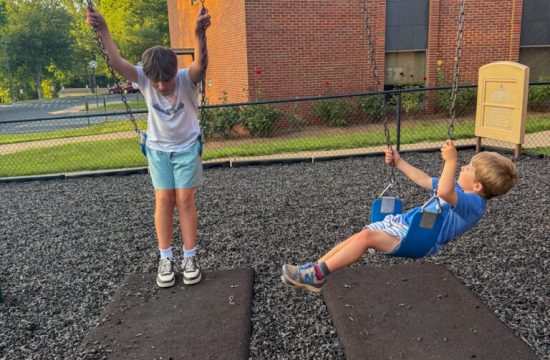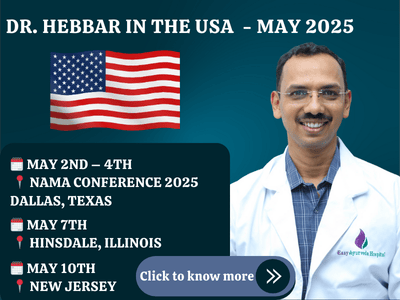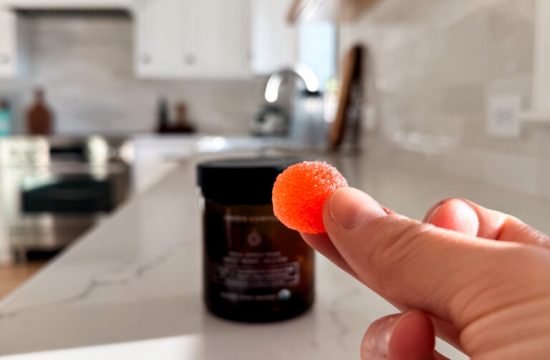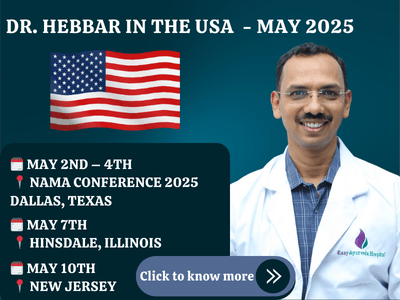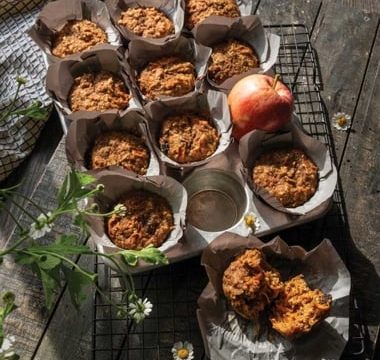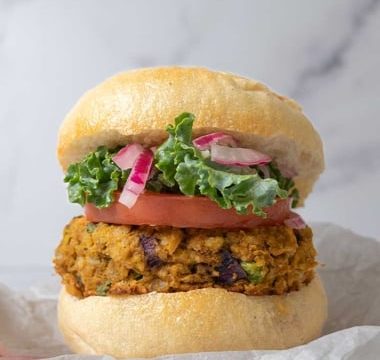Colton Underwood has always been in the public eye, first as a former professional football player and then as a star of The Bachelor. But his journey has taken some truly remarkable turns. After bravely coming out, Colton became a passionate advocate for the LGBTQ+ community, using his story to encourage others to live authentically. Now, he’s adding a new chapter to his life: fatherhood through surrogacy, all while continuing his advocacy work. He also launched his podcast, “Daddyhood,” where he shares the rollercoaster ride from fertility treatments to expecting his baby’s first steps.
We had the amazing opportunity to chat with Colton about this exciting new chapter. From the joys and challenges of fatherhood to the profound moments that have shaped his journey, Colton opened up about it all.
 How has your personal coming-out journey influenced your sense of identity and self-worth?
How has your personal coming-out journey influenced your sense of identity and self-worth?
My coming-out journey has influenced me greatly, and I’m still very much on that path, as many queer people are. I feel a lot more confident in who I am and understand my role within the LGBTQ+ community better.
This confidence extends to all communities I’m part of—the athletics world, the mental health space, and now the parenting space. Having different identities and responsibilities in these areas is something I take great pride in. Specifically within our LGBTQ+ community, I aim to serve as a bridge to middle America and the more conservative crowd, including the people I grew up with.
I strive to be patient and slow in helping them understand not just my personal journey, but also the journeys of others in our community.
When you first came out, did you feel welcomed by the gay community, or did you feel like you had to put in extra effort to earn your place because of your previous TV show fame and other things you were known for before coming out?
I feel like there were a lot of people who were really supportive and genuinely there for me. I tend to focus on those positive experiences because I’m definitely a glass-half-full kind of person.
There were some individuals who were tougher on me, but overall, many people stood by me, offering their support. It was incredibly overwhelming when I first came out, given that I had been running from my true self for so long. Having people take me under their wing, support me, lift me up, and patiently teach me was invaluable.
That’s the kind of support I now aim to give back to the community
How did you cope with some of the negative reactions or misunderstandings from friends, family, or the public after coming out? Was there a specific instance where you felt overwhelmed, and how did you manage to overcome it?
My entire journey had a lot of ups and downs. At that time, I was in therapy pretty intensely, making sure I had the right support for both my mental health and my coming out process. The experience of coming out was different depending on whether I was telling my friends, my family, or my professional team.
I leaned heavily on my therapist and psychiatrist to get me through it. Additionally, I found other activities and ways to keep building support for myself. Whether through exercise, hiking, meditation, or even taking a nap in the middle of the day, finding things to take care of myself and spending some “me time” was really important too.

 You recently partnered with Press Juicery for Pride. How do you choose which brands to align with, and why did you choose Press Juicery for this partnership?
You recently partnered with Press Juicery for Pride. How do you choose which brands to align with, and why did you choose Press Juicery for this partnership?
I prioritize brands that genuinely resonate with my lifestyle. I’ve been a fan of Press Juicery for a while now—living in LA and constantly on the move, their healthy juices have become a staple in my weekly routine.
When the opportunity to collaborate with them for Pride came up, I was immediately interested because of my existing relationship with the brand. But what clinched it for me was their year-round work with PFLAG. This kind of ongoing commitment is crucial for me when selecting Pride partnerships. It’s not just about what a brand does in June; it’s about their dedication to the community throughout the year. Press Juicery embodies that commitment with their consistent support for PFLAG.
So, my choice was strategic and authentic. I can confidently say that Press Juicery checks all the boxes for me when it comes to aligning with brands for Pride.
Colton, since coming out, you’ve been a strong advocate for mental health within the community. We know you have your Colton Underwood Legacy Foundation. Could you talk a bit about that and the TEAMS Act (Targeting Emotional And Mental Stability) that you launched to support student-athletes struggling with anxiety and depression?
Absolutely. Over the past two years, the focus of the Colton Underwood Legacy Foundation has shifted from cystic fibrosis to mental health. This change aligns more authentically with my personal journey and experiences. We’ve also recognized that many individuals living with cystic fibrosis experience depression and anxiety as secondary conditions.
Recently, I’ve dedicated a lot of my efforts in Washington, DC, to working on the TEAMS Act. This legislation aims to reallocate existing government funds, which are provided to campuses nationwide for suicide prevention, specifically towards mental health resources for student-athletes. Our goal is to collect data and understand what methods are effective, such as peer-to-peer counseling and 24/7 crisis text lines, and identify what works best in various parts of the country. My foundation is leading this initiative, in collaboration with Senator Booker and Senator Boozman, and it’s bipartisan, which I’m very proud of.
There’s still a significant stigma in athletics about mental toughness and the belief that enduring pain builds character. While this might hold true physically, it can be incredibly taxing mentally. Unfortunately, this mindset can lead to tragic outcomes, including suicides. It’s crucial that we change this narrative and continue to advance the conversation around mental health. That’s a key focus for us at the foundation.
With everything you currently have on your plate, how do you prioritize your responsibilities? What are your top priorities right now, both in your work and with your foundation? And how do you balance these commitments while also being a dad?
At this stage of my life, everything feels so synergistic. My work, personal life, and passions are all interconnected in a way that makes each day incredibly fulfilling.
It might sound a bit cliché, but it’s true what they say—when you find something you love, it doesn’t feel like work. That’s exactly where I am right now. From hosting the Daddyhood podcast to sharing my fertility journey, and advocating for mental health in Washington, D.C., everything is genuinely aligned with my current life path.
I have a strong desire to give back, to do good, and to keep learning. It’s an amazing feeling to see it all come together so beautifully.

 You launched your Daddyhood podcast this year. For those who might not be familiar with it, what inspired you to start this podcast, and what do you hope listeners will take away from it?
You launched your Daddyhood podcast this year. For those who might not be familiar with it, what inspired you to start this podcast, and what do you hope listeners will take away from it?
Absolutely. I think the inspiration came from a real need for information. Let’s face it, there are countless podcasts out there, and for a long time, I wasn’t sure what mine would focus on if I started one. But when my husband and I began our fertility process, the direction for the podcast became very clear.
There’s a significant lack of information about fertility, especially concerning men. Fertility issues are often unfairly attributed solely to women, even though men are equally part of the equation. This disparity in information is something that needs addressing.
Being in a same-sex marriage, I’ve realized that discussions around fertility in queer relationships are rare. The process is incredibly challenging, costly, and filled with obstacles, which makes it a tough topic to approach. Through Daddyhood, I’m striving to be a role model within this part of our community. I want to show that families can be built in various ways and that we can support each other through these unique journeys.
In your interview with People magazine and on your podcast, you discussed your fertility issues. By opening up about this publicly, did you find a community or support during your personal journey, or did you have to figure things out on your own?
Honestly, discussing fertility issues, especially as a man, is rare because it hits the ego hard. Initially, I didn’t want to talk about it. But the more I thought about it, the more I realized that’s precisely why men don’t discuss these issues—there’s a lot of shame and stigma attached to it.
I faced challenges with not having any sperm and trying to create embryos. After sharing my story, many friends reached out privately to say they had gone through similar struggles. This wasn’t just from my queer friends; some of my straight friends shared stories about how they and their wives tried to conceive for years. Often, the blame was placed on the woman when, in reality, the issue was with the man.
There’s definitely a need for more transparency and openness about fertility issues. It can really help others who are going through the same thing.
Were you at any point concerned about sharing that aspect of the journey?
Absolutely. My husband, Jordan, is a very private person, which posed some challenges early in our relationship. He’s an influential figure in the Democratic Party and not used to being in the public eye as much as I am.
Since everything I do now represents both of us and our growing family, we always have discussions about how much to share. But Jordan has been incredibly supportive. He has stepped up in ways that allow me to be myself and continue the work I’m passionate about.
One of our biggest goals is to serve as role models. That’s why it’s important to discuss our experiences, even the complex and expensive process of surrogacy, which is a significant part of our journey.
Can you talk a little about the challenges you faced as a same-sex couple during the surrogacy process? How did you resolve them? Are there any resources for gay couples looking to go through it?
Sure, there are definitely some resources, but I can’t recall specific ones off the top of my head. There are programs, almost like scholarships, that can help cover parts of your surrogacy and fertility journeys. I’ll need to follow up with you on the exact sites, but they are out there. For us, it was crucial to support each other and understand that it’s a long process.
Financially, it can be a burden. Planning properly is essential, and it’s important to explore all the different ways to build a family. We chose IVF and surrogacy, but adoption and foster care are also great options.
Specifically for surrogacy, having a good lawyer and understanding your rights and the laws in different states is vital. I always tell people, the first step is to get your sperm tested, and the second is to find a reliable lawyer.

 Did you encounter any difficulties specifically because you are a same-sex couple?
Did you encounter any difficulties specifically because you are a same-sex couple?
Not necessarily. We are fortunate to live in California, which is quite progressive in this regard. However, the process is very medical and clinical, which can make it feel impersonal compared to other fertility journeys.
We’ve been trying to find ways to make it more personal and meaningful for us, even within the medical framework.
You’ve mentioned how important it is to know that you can be a father even in a gay relationship. How did it feel knowing you were going to become a dad soon? What was it like telling your family that you were starting a family and expecting a son?
It was the most exciting thing for me to share with them. They’ve known since I was a young boy that I always wanted to be a dad. It was something I always talked about. For me to reach a point where I could tell my family that I’m going to be a parent was truly a dream come true. They’re incredibly supportive, loving, and thrilled to meet our baby boy.
How do you go about securing different guests on the podcast? Do you choose them based on your own experiences and the knowledge you think people should have, or is there another way you source your guests?
The answer is authenticity. I invite people who have genuinely impacted my life. For example, my doctor is someone I trust, and my lawyer is someone I rely on. The guests on my podcast are people or companies I’ve personally benefited from, like prenatal supplement companies or Legacy, a sperm testing company.
When I was first dealing with some health issues, I remember going to a clinic and feeling really uncomfortable. It didn’t feel right to me. That’s when I thought, “I’d rather handle this at home.” I discovered a company that allowed me to do just that. I reached out to the CEO and asked if they wanted to discuss their product and business on my podcast. These interactions often turn into amazing conversations about innovation in our space and making it safer for queer people.
As you prepare for fatherhood, what are some of the emotions and thoughts that have surprised you the most?
We’re incredibly excited about this new chapter. One of the unexpected feelings has been figuring out our role in the pregnancy since we’re not physically carrying the baby. Even though our surrogate is carrying the child, it’s very much our baby. We’ve been finding ways to feel connected to the pregnancy process. We’ve set up a nursery and made sure to be present at every doctor’s appointment with our surrogate. We’ve also invited our surrogate’s family over for dinner. Being intentional about these moments has been crucial for us to feel like we’re part of this incredible journey.
With a baby on the way, a loving partner, and the ability to live as your true self, what one word would you use to describe your life at this moment?
Grateful. I’m just grateful.


